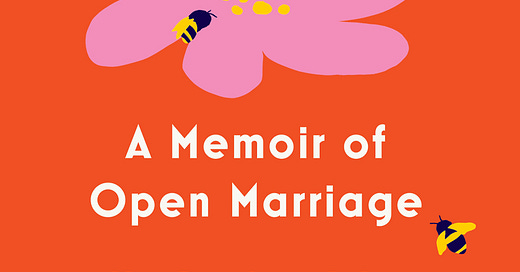It started on Wednesday night, a ripple of emotion as I watched my son perform in his first solo show. A few tears leaked out, but nothing more. On Thursday, I spent most of the day alone, trying and failing to write. I noticed a slight migraine building, but I wrote it off as PMS. On Friday afternoon, when a journalist from a foreign newspaper asked me questions about my book—things like, Why did you degrade yourself?—I tried to breathe through the tightening in my chest, to tell myself this was a cultural or linguistic gap, nothing to get upset about.
But by Saturday morning, when I awoke with a full-blown migraine, and said goodbye to my husband who was heading to Vegas for a guys’ weekend, leaving me alone in the house, I felt a wave surging up within me. Rather than quell it, I chose to ride it instead. And so—for nearly 20 minutes, accompanied by howling wails and body-racking sobs, the strength of which served to frighten away my dozing cat—I cried. Afterwards, I blew my nose with a dozen or so tissues and put a cool washcloth on my face to prevent my eyelids from swelling. My headache was gone, and I went on with my day.
I believe that crying is an excellent form of catharsis. In fact, my crying bout this weekend reminded me of the episode of food poisoning I endured a few weeks prior. If you have something toxic in your digestive tract, your body will find a way to eliminate it. The same is true for emotions, which are only toxic when they remain unexpressed. Crying and vomiting are both effective methods of purging. As my mother (and Shrek) used to say, “Better out than in.”
In several reviews of MORE, I’ve been depicted as a big crier. The latest, in The Economist, says I spend “around 80% of her memoir weeping over the emotional challenges of polyamory.” I just counted, and a form of the word “cry” appears 25 times in MORE’s 304 pages. I’m the one crying in just 18 of these instances, or approximately once every 17 pages, so 80% seems a bit extreme. (What’s more, the same review—which pairs MORE with Splinters—says the brilliant Leslie Jamison “weeps over baggies of goldfish crackers.” At least I’m in good company.)
I’ll admit that endless sobbing is not necessarily the stuff of great literature—but the act of crying isn’t bad in and of itself. Right? It probably depends on who you ask.
In her latest book, On Our Best Behavior: The Seven Deadly Sins and the Price Women Pay to Be Good, Elise Loehnen includes a final chapter on sadness—once grouped with the ‘seven sins’ as ‘eight thoughts.’ Although it was dropped for reasons not entirely understood, Loehnen posits that “sadness is the ‘sin’ most destructive to men… because it’s perceived as womanly, as weak.” While most women feel permitted to access our sadness, to give it expression, men generally do not. “At least we’re allowed to cry,” she says. “Many men are stuck.”
I have found this to be true with the men in my life—from my father to my sons, from my husband to most of my partners. Many of these men express their wish to cry, but the repression runs so deep they’re not even sure they can anymore, at least not beyond a light dampening of the eyes. This is as horrifying to me as the idea of never again laughing until you gasp for air. Never again experiencing an orgasm. Never again dancing with abandon.
Apart from the need for a physical release, reckoning with sadness is an essential part of life. Writes Loehnen, “To love requires that you will lose. But it is our own human imperative to wager it all, constantly. We must accept the prospect of grief and anguish in exchange for love. Too many of us attempt to keep both at bay, insisting that by avoiding the messiness of attachment we can control life and protect ourselves from loss.”
As I lay in my bed in the aftermath of my Saturday morning cry, I felt aware of my aloneness as a human being. But I know that we humans are also connected. Both things are equally true, in the way that so many truths are paradoxical in nature. That is one of the many lessons that my open marriage has taught me. And so, if my memoir only told the story of the highs—the joys of connection—without ever exploring the lows—the depths of loss—it would be a lie. A flat line instead of the beating heart that is the essence of life, of love.
Our pain is interwoven with our joy. To feel one, we must feel the other. And so I will continue to cry, perhaps doubly hard as I wait for the men I love to cry with me. As Loehnen suggests, “There is much to mourn, the grief must come: Women can lead us through this wasteland, to where a more balanced era awaits.”




Good for you, riding that wave of emotion. Tears are so cleansing & cathartic ~and ultimately healing. I am so grateful to experience and express the full range of emotions, especially since getting sober.
My experience with the men I dated during my open marriage & since separating from my to be ex is similar to yours. Men (especially men over age 45) are very disconnected from their emotions. And it’s not their fault. The culture has taught them not to feel and has punished them harshly when they expressed their feelings -other than anger. I am hopeful this is shifting a bit.
Also. F that guy for implying that you degraded yourself!
Perhaps apropos of your comments about scarcity of men who cry, Travis Kelce's crying at his brother Jason's recent retirement speech was a widely covered story in the national news.